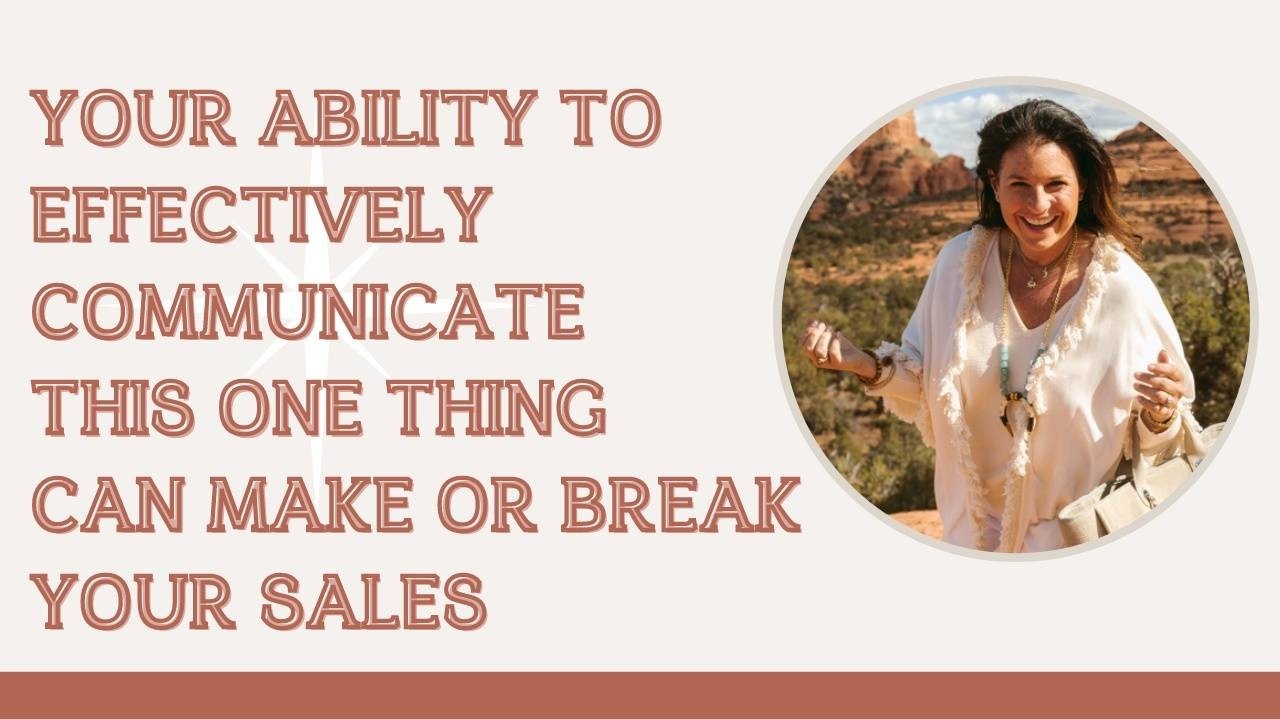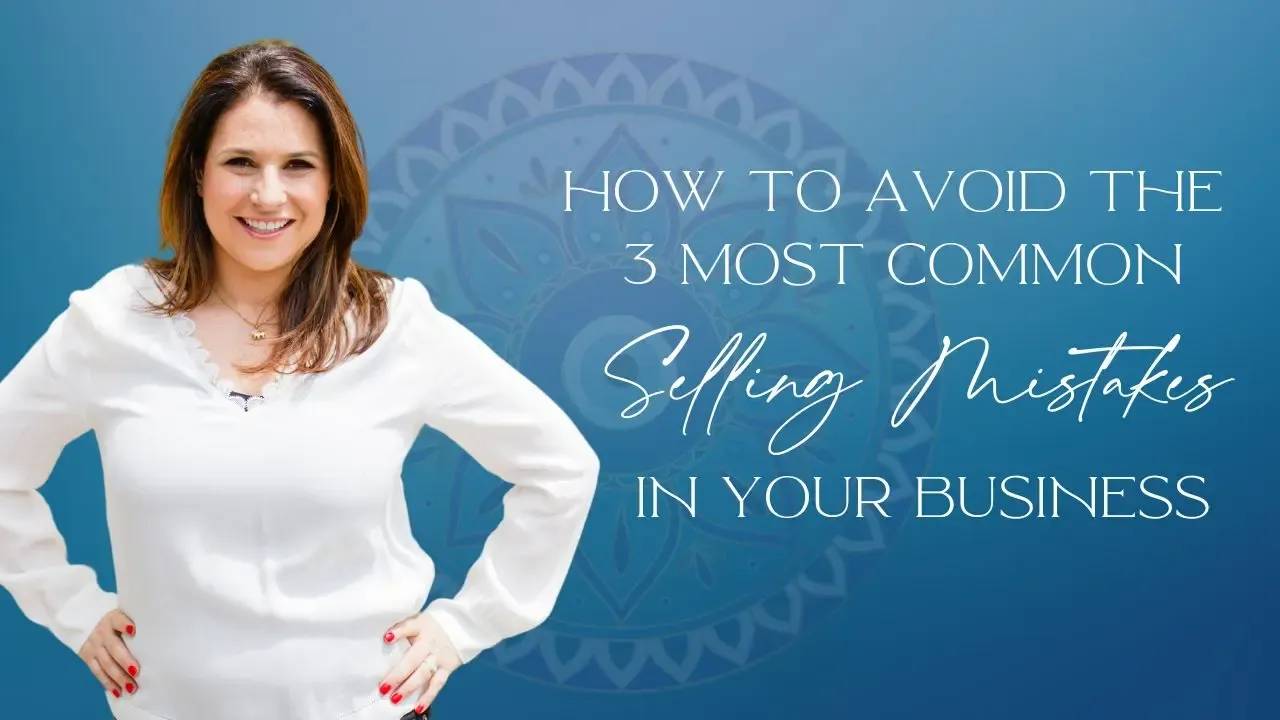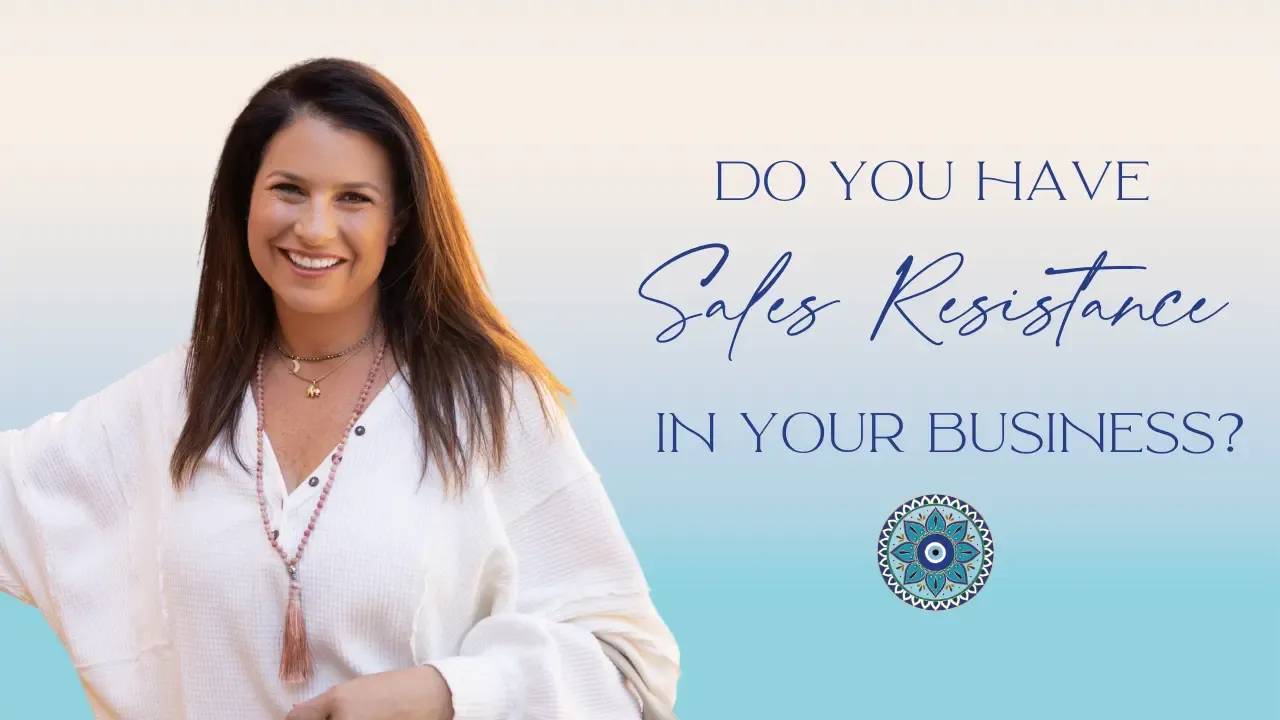Your Ability to Effectively Communicate this One Thing Can Make or Break your Sales

Do you know what is the number one thing that makes a difference in whether or not your potential customers choose to buy from you or not?
It’s not what you’re selling, or how it works, or the features that are better than your competitor’s. It all comes down to value.
The reality is, if you can’t articulate the value you will deliver to your prospective customer, then they won’t be able to see why they should buy from you.
In today’s new post, I’m giving you the roadmap to more consistent sales (spoiler alert: it’s a process that gets you thinking backwards from how most people approach their selling strategy - and it really works!).
Read on to learn how believing in your own value and clearly communicating that value will get your prospects wholeheartedly buying into what you’re selling - without even thinking about lowering your prices.
How most people start off on the wrong foot when selling
I've seen this so many times, over and over again: People who are trying to sell something immediately launch into their pitch with the what, why, how. They start with what they’re selling, how it works, and list off the reasons their prospective customer should buy it. And that, I hate to say, is completely wrong. And it definitely doesn’t get people to buy.
This is because starting your pitch this way is all about you.
You see, it's not about showing up and throwing up a laundry list of features and benefits, which is what most people tend to do. When you do that, you've already lost your potential customer.
You’ve got to begin with their why, not yours
My husband Jeffrey says, “Learning why they buy is 100 times more powerful than learning how to sell. Because if you know why they buy, then selling becomes easy.”
Most people don't buy from reason or logic; most people buy emotionally. And so you need to start with where your customer is at. And where they're at is they have a problem that needs solving - it's really that simple. Once they then perceive your value to be worthy of solving their problem, then they begin to consider your solution. And the sale is easier from there.
Start by assessing if you’ve uncovered your prospective customer’s why.
Why does the customer need your offer? What problem are you solving for them? How does your solution get them from where they are now to where they want to go?
They're starting with emotion. They have a problem, and they need a solution. Problems become emotional. So if you want to stop being like everyone else who starts with the factual and logical (ie. the what and how), then your job is to think backwards, which is really forwards, in my book.
Think about this: What happens after your customer purchases. And what happens if they don't buy? Get them to envision both of these paths. Get them to envision what all the good things are that are going to happen after they purchase, so they can begin to understand that their outcome will be amazing. By working backwards and showing them what life will be like with their problem solved, you’re showing them that what you have to offer is of value to them. You’re showing that the value in your offer far exceeds the outcome that they're going to have long term.
Believing in your own value
So really, what it boils down to is being able to communicate your value. But when it comes to value, I've seen so many people have a hard time promoting, communicating, articulating their value because it's often easier to sell someone else's product or service than it is to talk about yourself.
Growing up, we're taught to be humble and not speak too much about ourselves. And so when it comes to articulating value, I see a lot of business owners and entrepreneurs have a problem really speaking up about themselves. But that's because you’re believing or choosing to believe that this is speaking about yourself, when really what you’re doing is speaking about the value of your offer, the value your customer is going to gain by working with you. It’s time for you to separate your work from your personal identity. These are two different things.
Ask yourself: How strong is my belief in the value I provide? Do I believe my customer is better off having purchased from me?
Remember - value is not only articulated through words. Value is also articulated through nonverbal communication. Your customers are perceptive and can pick up on whether or not you believe the value is there or not. When you wholeheartedly believe in something and believe in your value, that message is going to get transferred through everything you're saying.
Scaling your value
Now, when you're just starting out, or when you're trying to get to that 100k mark, it's about discovering what your value is. And I remember throwing out lots of different offers, trying different things, really trying to figure out how to differentiate myself from the competition, and where that sweet spot of my value was. Sound familiar? But once you grasp that and once you pass that 100k mark, it becomes about scaling your value. It's about figuring out how to deliver what your customers value at scale.
Now, you're not creating a new program over and over again, and you're not customizing over and over again. You're now known for this certain thing that you deliver so much value in, so now it’s time to consider how you can replicate that and grow that at scale, so that you're not working around the clock and trading time for dollars all the time. And that's where you begin to leverage your ability, your skills, your knowledge, and expertise. That's where you begin to really grow at scale.
Wrapping up
It all begins with communicating your value, and really understanding for yourself what that value is. Because if you don't know what the value is, and you don't know how you specifically help people, how are your potential buyers going to understand either? They're not mind readers. They want to see that you are confident - certain - that you can solve their problem.
Your customers are buying value. When they perceive the value to be higher than the price, then they buy. When they don't perceive the value to be high enough, then they don't buy and they blame it on price. But it's not about the price. It's about the value.
So many people who don’t know how to articulate their value end up discounting their prices. They believe people aren’t buying because the price is too high. But lowering your prices won’t change the fact that you didn’t solve your customer’s problem. You haven't demonstrated to them that there is enough value to get them to want to buy.
Need help?
If you feel like you're not articulating your value in the best way, then work with me or a coach to determine what the value you’re offering is and how you can articulate that. Once you learn how to communicate your value to your potential customers, you’ll never feel like you need to lower your prices again. You can instead show up and serve from this authentic place that's full of value because you know exactly how you help your clients. And they know exactly why they should buy from you.
Want to talk about more ways to own your value? Reach out to me on Instagram @jengitomer





